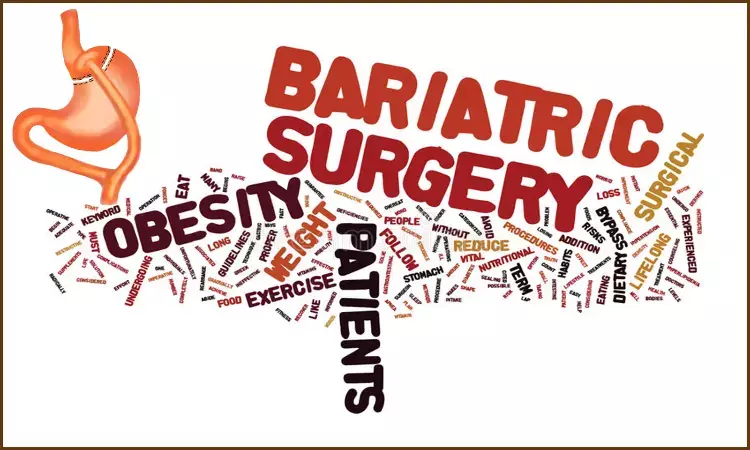- Home
- Medical news & Guidelines
- Anesthesiology
- Cardiology and CTVS
- Critical Care
- Dentistry
- Dermatology
- Diabetes and Endocrinology
- ENT
- Gastroenterology
- Medicine
- Nephrology
- Neurology
- Obstretics-Gynaecology
- Oncology
- Ophthalmology
- Orthopaedics
- Pediatrics-Neonatology
- Psychiatry
- Pulmonology
- Radiology
- Surgery
- Urology
- Laboratory Medicine
- Diet
- Nursing
- Paramedical
- Physiotherapy
- Health news
- Fact Check
- Bone Health Fact Check
- Brain Health Fact Check
- Cancer Related Fact Check
- Child Care Fact Check
- Dental and oral health fact check
- Diabetes and metabolic health fact check
- Diet and Nutrition Fact Check
- Eye and ENT Care Fact Check
- Fitness fact check
- Gut health fact check
- Heart health fact check
- Kidney health fact check
- Medical education fact check
- Men's health fact check
- Respiratory fact check
- Skin and hair care fact check
- Vaccine and Immunization fact check
- Women's health fact check
- AYUSH
- State News
- Andaman and Nicobar Islands
- Andhra Pradesh
- Arunachal Pradesh
- Assam
- Bihar
- Chandigarh
- Chattisgarh
- Dadra and Nagar Haveli
- Daman and Diu
- Delhi
- Goa
- Gujarat
- Haryana
- Himachal Pradesh
- Jammu & Kashmir
- Jharkhand
- Karnataka
- Kerala
- Ladakh
- Lakshadweep
- Madhya Pradesh
- Maharashtra
- Manipur
- Meghalaya
- Mizoram
- Nagaland
- Odisha
- Puducherry
- Punjab
- Rajasthan
- Sikkim
- Tamil Nadu
- Telangana
- Tripura
- Uttar Pradesh
- Uttrakhand
- West Bengal
- Medical Education
- Industry
Sleep apnoea patients lose less body weight after bariatric surgery, reports Study

Although the benefits of bariatric surgery have been clearly established, it is not known whether they are as important in patients with obstructive sleep apnoea (OSA). A recent report published in the International Journal of Obesity states that patients with obstructive sleep apnoea lose less body weight after bariatric surgery and that it is related to older age and a higher baseline body mass index.
Jessica Guggino and colleagues from the Department of Endocrinology Diabetology Nutrition, Grenoble Alpes University Hospital, Centre Spécialisé de l'Obésité Grenoble Arc Alpin, Grenoble, France conducted the study with the aim to evaluate whether patients with moderate-to-severe obstructive sleep apnoea treated by continuous positive airway pressure/non-invasive ventilation lose the same amount of body weight 1 year after bariatric surgery as patients with no or mild obstructive sleep apnoea.
Secondary objectives were laid out to compare the evolution of type 2 diabetes and hypertension after bariatric surgery, and surgical complication rates between groups.
Analyses were performed in 371 patients included in a prospective cohort of bariatric surgery, the Severe Obesity Outcome Network cohort. Subjects having moderate-to-severe obstructive sleep apnoea (n = 210) at baseline were compared with other subjects (n = 161).
The following findings were highlighted-
- Excess weight loss (%EWL) at 1 year was lower in patients with moderate-to-severe obstructive sleep apnoea than in patients without (64.9%EWL [46.9; 79.5] vs. 73.8%EWL [56.6; 89.3], p < 0.01).
- Multivariable analysis showed that age, initial body mass index and type of surgery, but not obstructive sleep apnoea status, were associated with 1-year %EWL.
- Diabetes remitted in 25 (41%) patients with moderate-to-severe obstructive sleep apnoea and 16 (48%) patients with no or mild obstructive sleep apnoea (p = 0.48).
- Hypertension remitted in 28 (32.9%) patients with moderate-to-severe obstructive sleep apnoea and 9 (40.9%) with no or mild (p = 0.48).
- Complication rates were 28 (13.3%) in patients with moderate-to-severe obstructive sleep apnoea and 12 (7.5%) in patients with no or mild obstructive sleep apnoea (p = 0.07).
As a result, it was concluded that patients with obstructive sleep apnoea lose less body weight after bariatric surgery. This was related to older age and a higher baseline body mass index.
However, the improvements of diabetes and hypertension were similar to that of patients without obstructive sleep apnoea, and the risk of surgical complications was not higher.
Guggino, J., Tamisier, R., Betry, C. et al. Bariatric surgery short-term outcomes in patients with obstructive sleep apnoea: the Severe Obesity Outcome Network prospective cohort. Int J Obes (2021). https://doi.org/10.1038/s41366-021-00903-5
Dr. Nandita Mohan is a practicing pediatric dentist with more than 5 years of clinical work experience. Along with this, she is equally interested in keeping herself up to date about the latest developments in the field of medicine and dentistry which is the driving force for her to be in association with Medical Dialogues. She also has her name attached with many publications; both national and international. She has pursued her BDS from Rajiv Gandhi University of Health Sciences, Bangalore and later went to enter her dream specialty (MDS) in the Department of Pedodontics and Preventive Dentistry from Pt. B.D. Sharma University of Health Sciences. Through all the years of experience, her core interest in learning something new has never stopped. She can be contacted at editorial@medicaldialogues.in. Contact no. 011-43720751
Dr Kamal Kant Kohli-MBBS, DTCD- a chest specialist with more than 30 years of practice and a flair for writing clinical articles, Dr Kamal Kant Kohli joined Medical Dialogues as a Chief Editor of Medical News. Besides writing articles, as an editor, he proofreads and verifies all the medical content published on Medical Dialogues including those coming from journals, studies,medical conferences,guidelines etc. Email: drkohli@medicaldialogues.in. Contact no. 011-43720751


